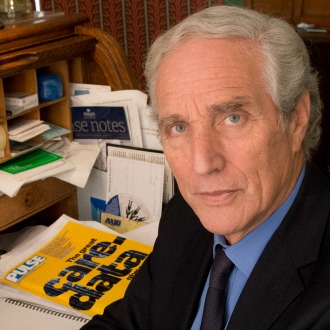‘Better information means better care,’ says the leaflet that was meant to be delivered to all addresses in England to explain the care.data scheme.
But this small bit of paper has ignited an almighty row over consent, confidentiality and who actually owns patient records, subjecting the Government’s flagship data-sharing scheme to intense scrutiny.
Now NHS England has announced it is shelving the scheme for six months, postponing the planned extraction of data from GP surgeries from April until the autumn.
The delay comes amid rising public concern. In the days before NHS England’s announcement, both the RCGP and the GPC withdrew their support for the project, warning that ‘large numbers’ of patients had not yet received any information and calling for the publicity campaign to be expanded.
Care.data will see data from patient records extracted from all GP practices, linked to secondary care data, shared across the NHS and in time made accessible to researchers and even private companies. Supporters argue it will have significant benefits for both commissioning services and medical research, but there have been major concerns about the leafleting campaign, with critics arguing that it glossed over the potential drawbacks of taking part in the scheme and should have made opting out easier.
A poll of 860 adults in England commissioned by the BBC found that two-thirds of people did not remember receiving a leaflet, while some 45% of respondents said they still did not understand the scheme.
NHS England has said it is urgently looking into these claims, but Royal Mail says it has fulfilled its contract.
Tim Kelsey, national director for patients and information at NHS England, said: ‘We have been told very clearly that patients need more time to learn about the benefits of sharing information and their right to object.’
NHS England also said it would work with patients and professional groups – including the BMA, RCGP and Healthwatch – ‘to promote awareness with patients’.
The RCGP has suggested that individually addressed letters should be sent out about the scheme and it should be advertised on TV and radio.
RCGP honorary secretary Professor Nigel Mathers said: ‘The extra time will provide [NHS England] with the chance to inform every patient of their right to opt out, every GP of how the programme will work, and the nation of what robust safeguards will be in place to protect the security of people’s data.’
How the care.data controversy unfolded
2013
• March
The Health and Social Care Information Centre announces plans for care.data to join up GP and hospital records.
• April
NHS England admits there is a risk that patients will be identified through care.data.
Jeremy Hunt announces patients will have ‘veto’ over their data being shared.
• May
NHS England announces pilots of care.data will take place.
• August
Private companies are set to gain access to data for as little as £1, it emerges.
NHS England rules out a national publicity campaign for care.data.
• September
GPC warns GPs that they are unable to object to patient records being shared under care.data.
• October
NHS England delays care.data extractions and announces a £2m publicity campaign after pressure.
• November
Pulse reveals that two GPs have taken the ‘unlawful’ decision to opt all their patients out of care.data.
2014
• January
Information Commissioner’s Office says GPs will be held responsible for patient complaints over care.data.
Pulse survey reveals more than 40% of GPs intend to opt themselves out of care.data.
Leaflets explaining care.data are sent to homes across England.
• February
Pulse reveals that independent experts overseeing care.data have approved 31 releases of other identifiable patient data since April.
Oxford GP Dr Gordon Gancz is hit with a contract notice over his plan to opt all of his patients out of the scheme.
NHS England delays care.data after objections from both the GPC and the RCGP.
Pulse survey reveals three out of four GPs believe care.data should be ‘opt in’.
Pulse October survey
Take our July 2025 survey to potentially win £1.000 worth of tokens













